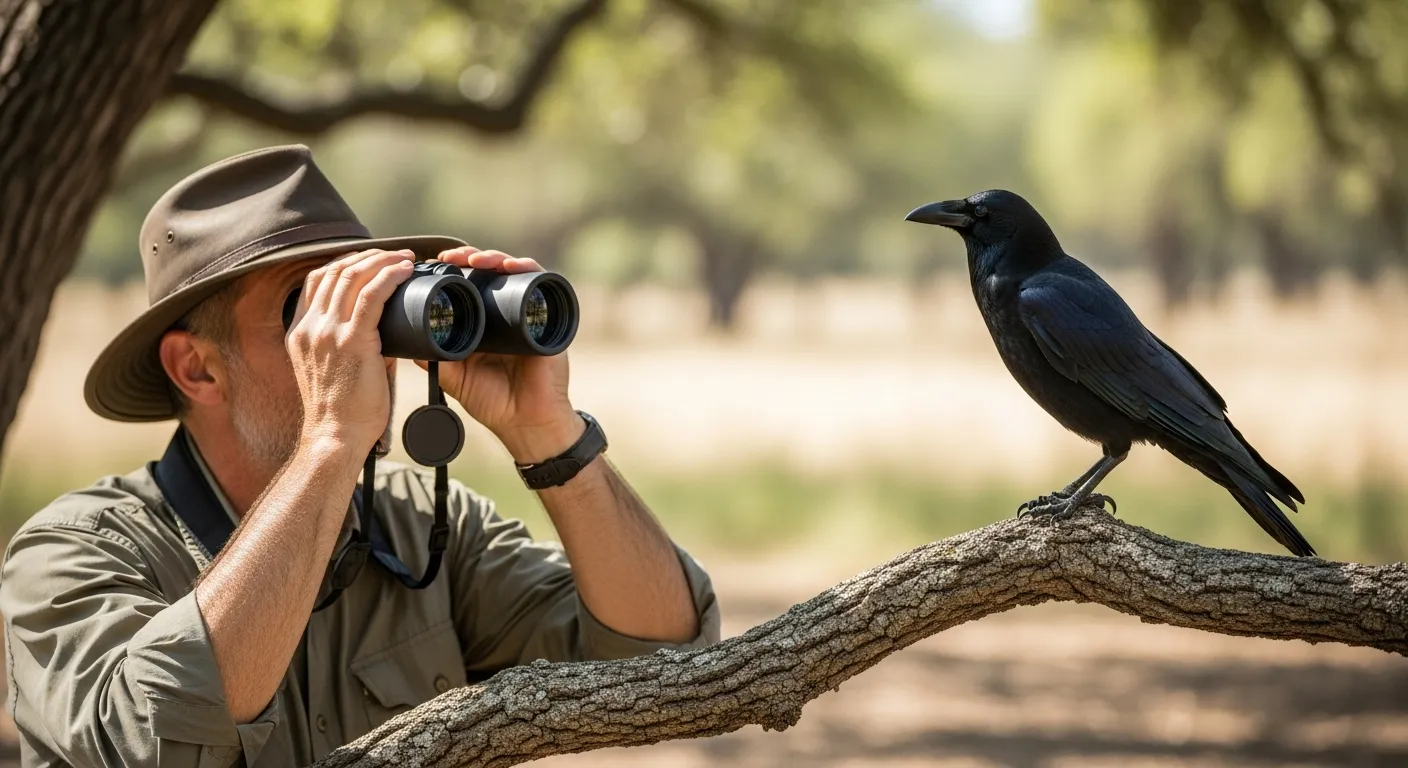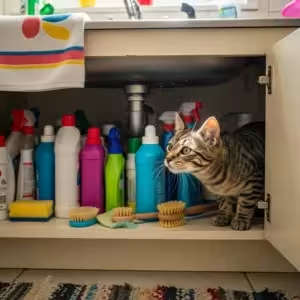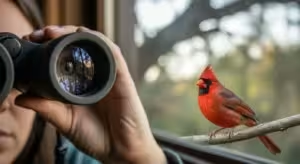
Observing Crows Safely and Ethically
Armed with a new appreciation for the intelligence of crows, you might be eager to observe them more closely. Doing so responsibly is crucial for both your safety and their well-being. The core principle of ethical wildlife observation is to watch from a distance without altering the animal’s natural behavior.
A good rule of thumb is to stay at least 50 to 100 feet (about 15 to 30 meters) away. If a crow or any bird changes its behavior because of your presence—if it stops feeding, becomes agitated, or flies away—you are too close. The best tool for a crow watcher is a good pair of binoculars, which allows you to see details without intruding on their space.
A Note on Nesting Season Safety
Crows are devoted and fiercely protective parents. During their nesting season, which typically runs from March through late June depending on the region, they can become very defensive. If they perceive you or your pet as a threat to their nestlings, they may engage in a behavior called “mobbing,” where they caw loudly and dive-bomb the intruder. While they rarely make physical contact, it can be an unnerving experience.
If you find yourself being dive-bombed by a crow, do not panic or act aggressively. Calmly and quickly walk away from the area. The crows are simply trying to escort a perceived threat away from their young. You have likely strayed too close to their nest, which is often hidden high in a tree. Make a mental note of the location and choose a different route for a few weeks until the fledglings have left the nest.
To Feed or Not to Feed?
While the idea of befriending a crow by offering food is tempting, wildlife experts and organizations like the National Audubon Society strongly advise against it. Feeding crows and other wildlife can lead to several problems:
- Habituation: Birds can lose their natural fear of humans, making them vulnerable to less friendly people or other dangers like cars.
- Dependency: They may become reliant on an artificial food source, which is less nutritious than their natural diet.
- Disease: Food left out can grow mold or bacteria, and congregations of birds can facilitate the spread of avian diseases.
- Nuisance Behavior: Crows that expect food can become aggressive or destructive, causing conflicts with neighbors.
A much better way to attract crows for observation is to provide a clean, reliable source of water, such as a sturdy bird bath. This helps the birds without the risks associated with feeding. You can also contribute to their well-being by planting native trees and shrubs that provide natural food and shelter.















